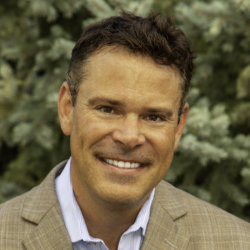Guide to Homeowners Insurance in Colorado
Pricing is part of the story
The ins-and-outs of coverage should be top-of-mind while you search for a policy. Many agents miss limitations and exclusions that impact your coverage when providing a quote, so be ready to advocate for yourself to ensure the policies you look at have what you need. Would you insure half your car? It’s important to ask questions. Look at all the additional coverage options.
Location will impact your premiums
Where you live will affect your insurance rates more than any other factor. The most common claims in Denver are for theft, water damage, and hail. The Denver Post reports that a bad hailstorm lasting just a few minutes can lead to far costlier claims than a forest fire that burns for days. Meanwhile, Durango, a smaller city in southwestern Colorado, manages to dodge hailstorms (it didn’t have one in 2017, while Denver had 19, according to StormerSite). Durango also enjoys fewer claims for property crime, hence its more affordable policy prices. As a result, homeowners in Durango pay about three times less than their counterparts in Denver.
Beware of “stormchasers”
Hail is such a widespread problem in Colorado that it has spawned its own cottage industry of roofing scammers. After a really bad hailstorm, scammers — known as “stormchasers” — often go door-to-door promising roof repairs, says the Denver Post. If you get an unlicensed contractor to perform hail repairs, you could end up damaging your home and your insurance premium.
Early June 2016 saw damaging hail throughout metro Denver, which spawned a local coalition led by the Better Business Bureau and the Colorado Division of Homeland Security and Emergency Management to raise awareness about these shady contractors. Before you sign a contract with a roofing contractor, here are some tips from the coalition on how to avoid getting played:
- Don’t get pushed into signing a contract right away. Try to compare estimates with another contractor first.
- Make sure the contractor is registered to conduct business in Colorado, and see to it that they have a permanent address and federal tax ID number.
- Ask for proof of the contractor’s insurance.
- Don’t pay a contractor in full until the work is complete.
- Don’t sign a contract with blank entries, or wishy-washy language, where a contractor may be able to add in terms later that you didn’t agree to.
- Make sure the contract you sign complies with Senate Bill 38.
Colorado Homeowners Insurance FAQ
How much is homeowners insurance in Colorado?
Colorado insurance premiums generally ranged from about $500-$2,000. Still, insurance rates are always highly personal, and homeowners insurance is no exception. Everything from your credit score and home’s location to its proximity to the nearest fire station can affect your premiums. Many providers also offer a number of discounts that can greatly reduce the number you’re quoted.
Does homeowners insurance cover wildfires in Colorado?
Most Colorado homeowners insurance policies will cover wildfires under fire damage provisions in their policies. Still, there are many steps you can take to reducing damage in the event of a wildfire. The Colorado Division of Fire Prevention and Control recommends clearing 200-500 feet around your home of all trees, brush, and leaves. You should also make sure your home is easily accessible to firetrucks and emergency responders.
What is the Homeowners Insurance Reform Act?
In 2013, the Homeowners Insurance Reform Act was signed with the goal of improving communication and understanding between insurers and the insured. At the time, the Waldo Canyon wildfires of 2012 had just destroyed over 300 homes, causing more than $450 million of damage. The devastation exposed a lot of problems with homeowners insurance in the state: Typically, insurers offer 12 months of living expenses for people as their homes are being re-built, but for many victims, 12 months wasn’t enough time, and they were left out in the cold.
In addition, many homeowners were lost in the confusing terms of their policy, and didn’t understand that “replacement costs” did not mean that their home would be replaced, but rather that the insurance company would only replace the home up to a specified dollar amount. Lucy Buck, an insurance agent for State Farm based in Denver, goes to extra lengths to make sure her customers understand replacement costs, but says, “There’s been a lot of litigation and confusion around the term.”
The act sought to clear up a lot of those confusions. Among its provisions:
- Homeowners insurance policies must have more detailed disclosures, and be written at a 10th-grade reading level or lower.
- Homeowners and their insurers must carefully discuss “replacement value” up front rather than after the home is destroyed, and language in the written policies must define replacement costs for customers — i.e., that they may not cover the total costs of replacement for a home.
- All insurers must offer at least 12 months of living expenses for affected customers, and must offer the option for 24 months of living expenses.
- Insurers must offer policyholders extended replacement-cost coverage for at least 20% of the replacement limit, plus another 10% to cover laws and ordinances.
- Insurers must consider estimates from contractors solicited by the policyholders.
Keeping you protected.
Rick
All Access Insurance in Littleton, CO, who represents multiple insurance companies as a “Broker” and provides products for auto, home, commercial, workers compensation, and much more! Call us today for a free quote at (303) 932-1700
 By
By